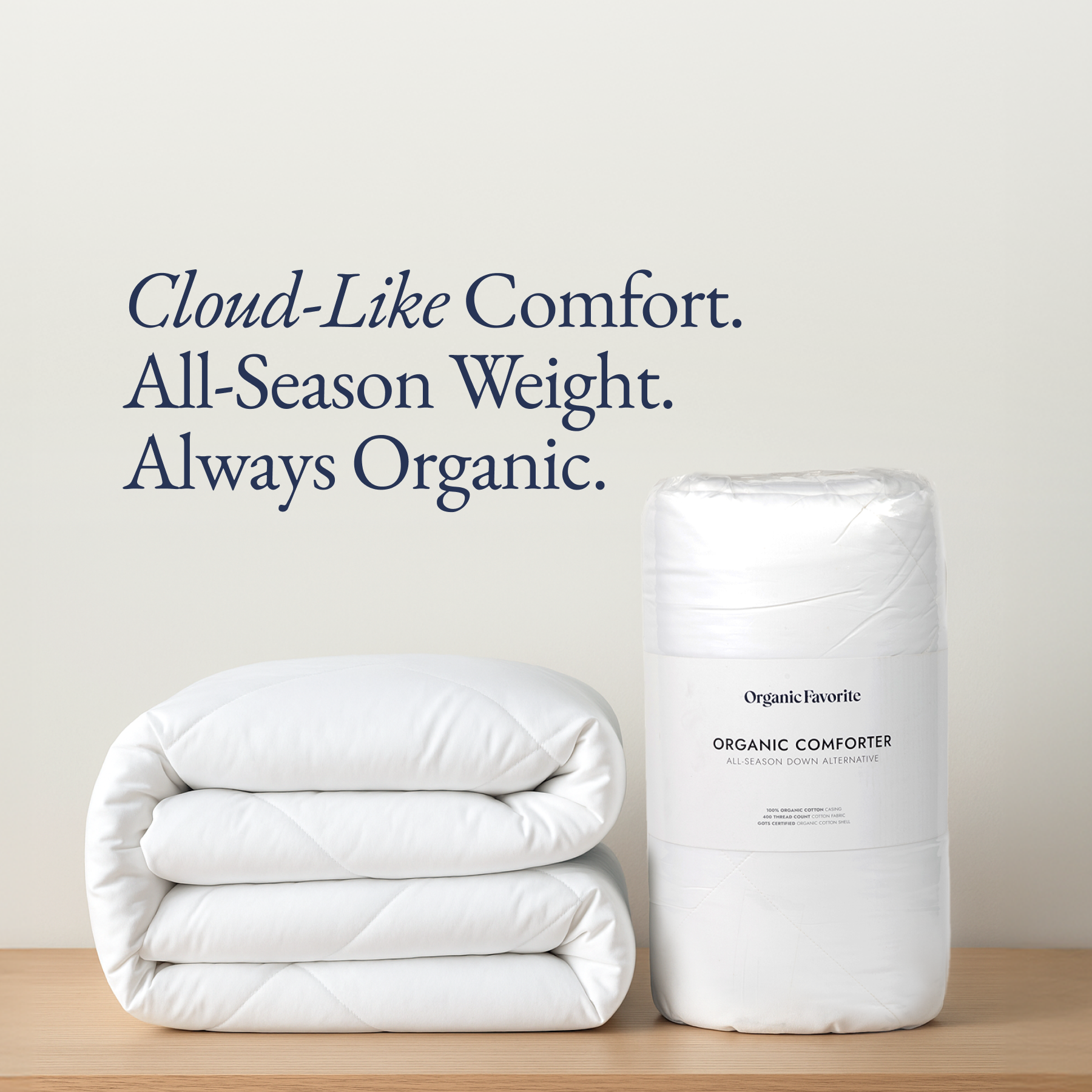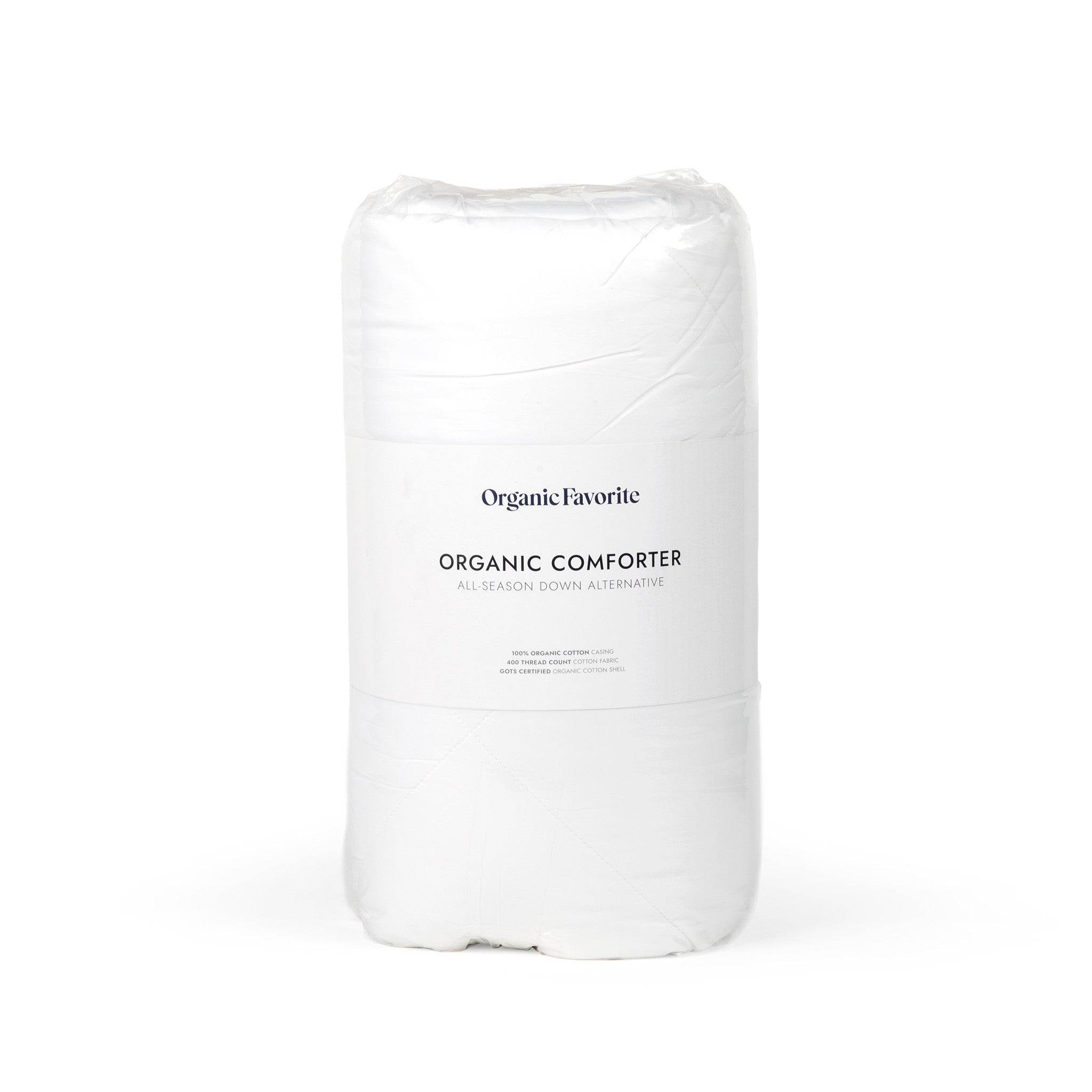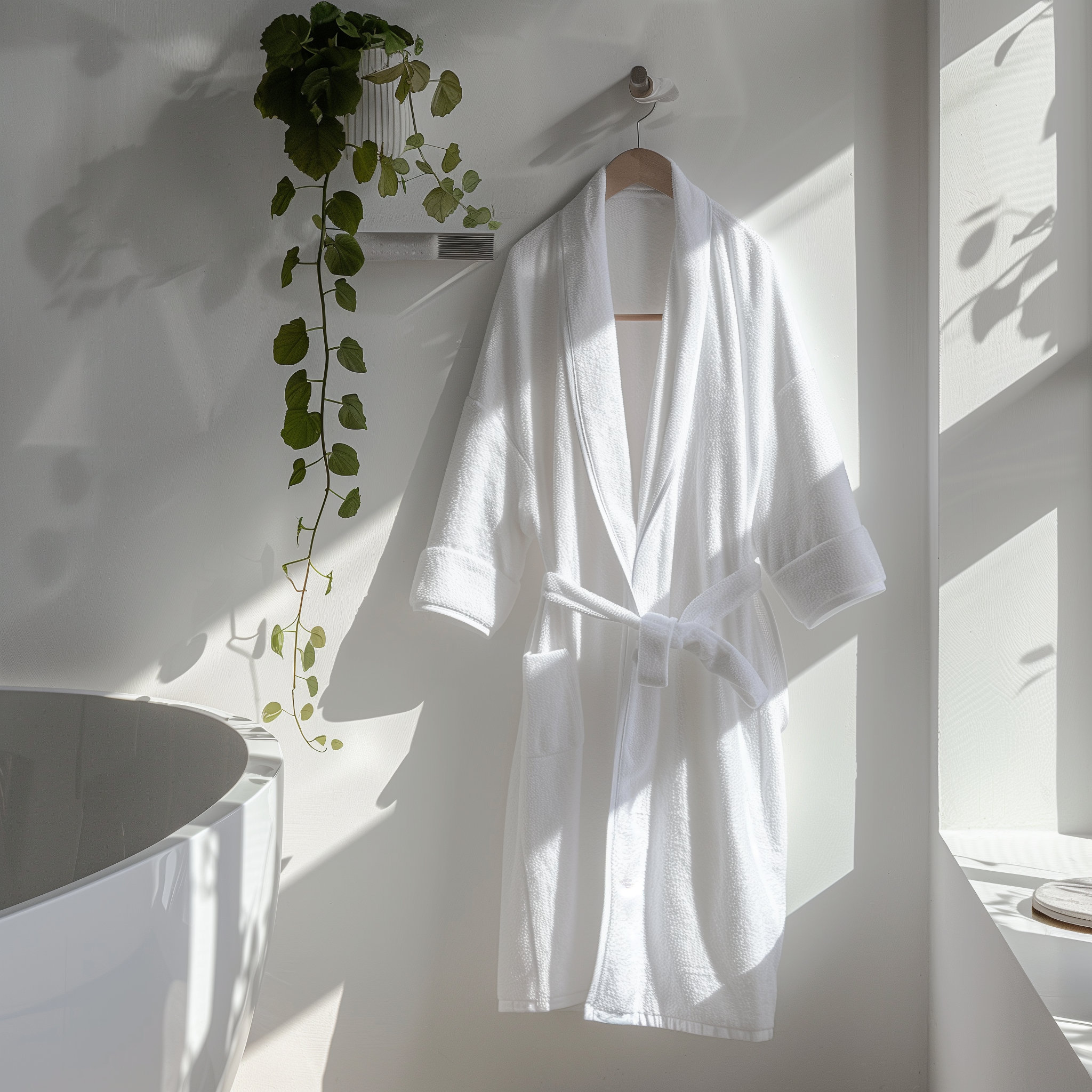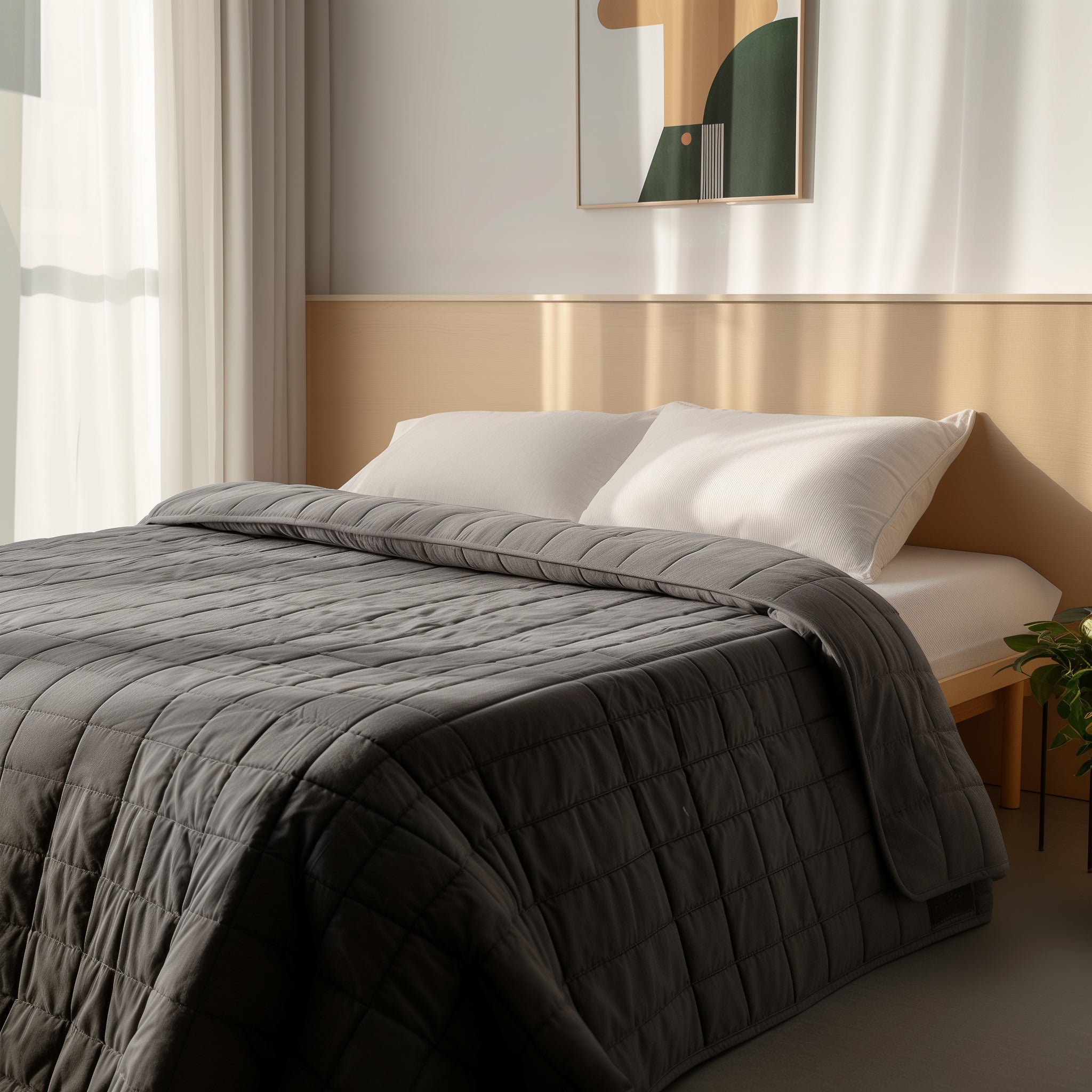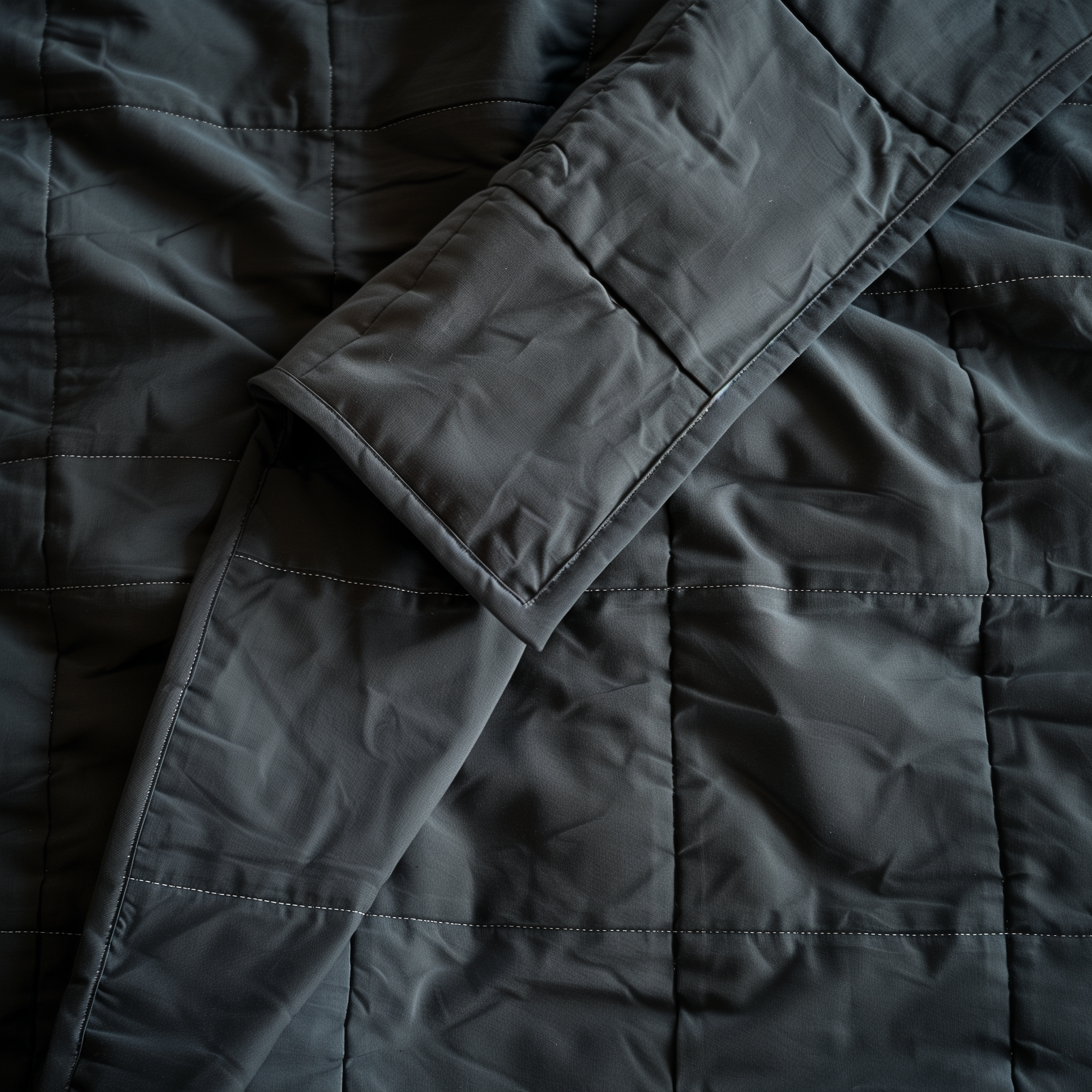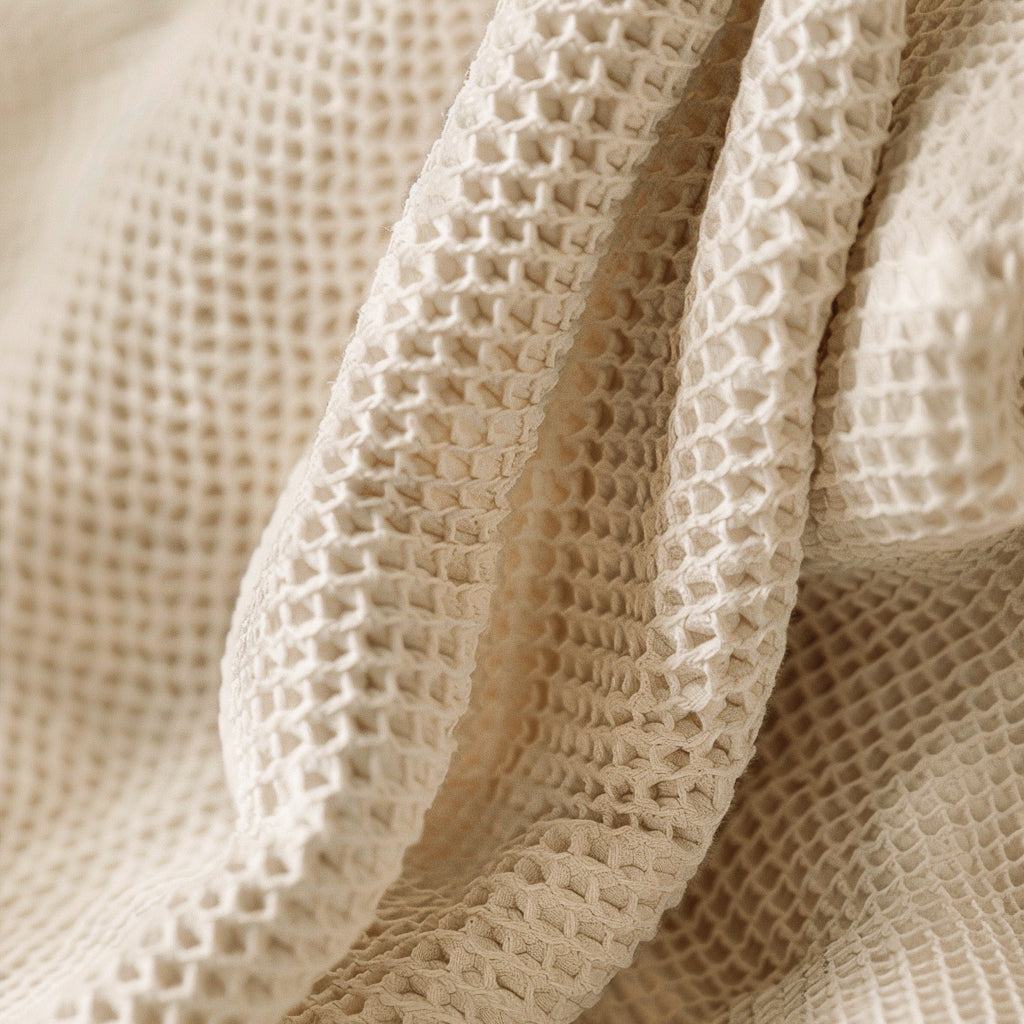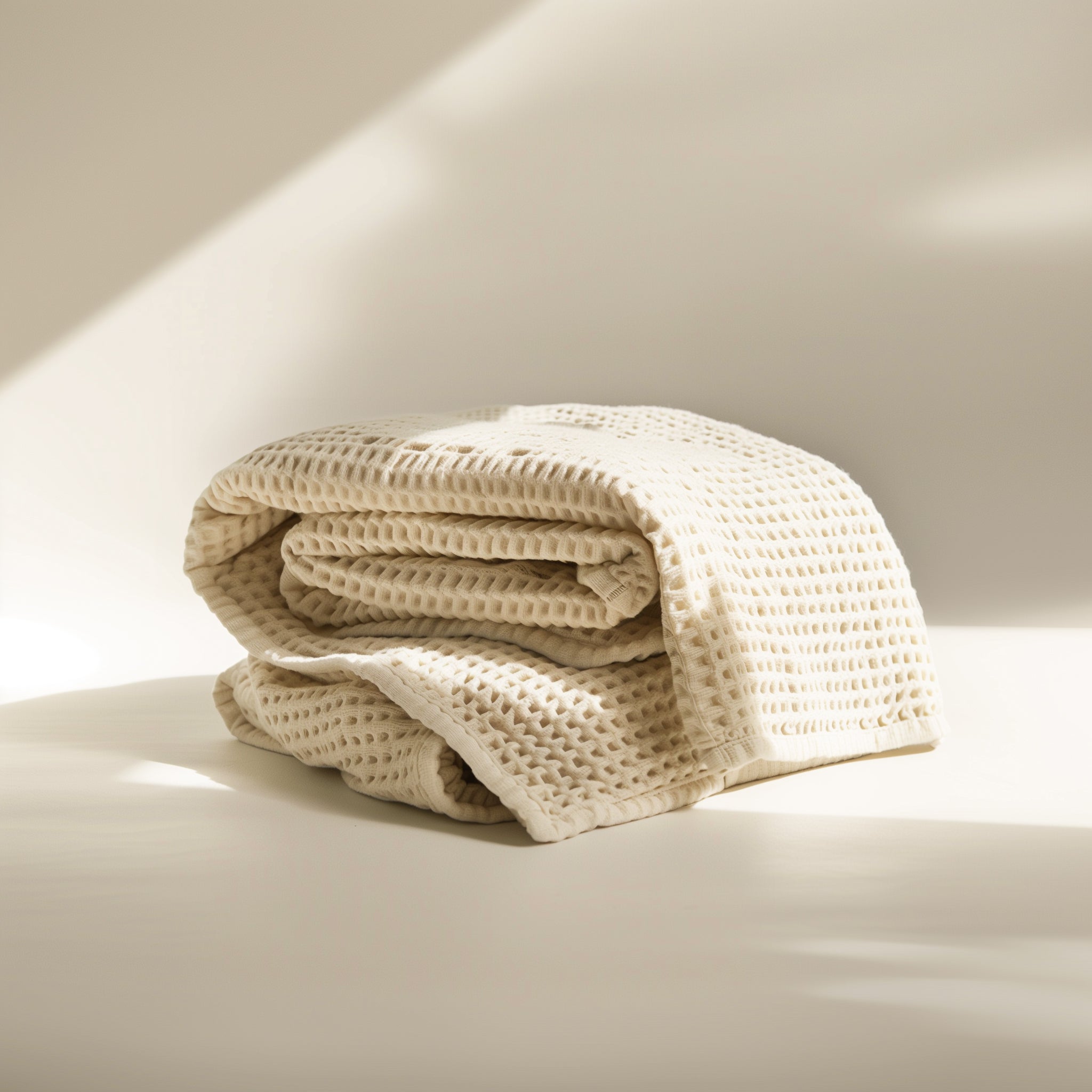What is Non-Toxic Bedding? Why Does It Matter?
We spend about a third of our lives in bed, but have you ever stopped to think about what you're sleeping on? Traditional bedding is often treated with chemicals like flame retardants and pesticides that can release toxins into the air you breathe every night.
Switching to non-toxic, organic bedding isn't just about comfort—it's about creating a healthier sleeping environment. Whether you've noticed issues like nighttime headaches or just want to make your home more eco-friendly, choosing organic materials can make a big difference.
With certified options like the Organic Cotton Comforter, you can enjoy a restful night’s sleep without worrying about harmful finishes or off-gassing. Plus, organic bedding supports sustainable farming and fair labor practices—so it’s good for the planet, too.
Ready to learn more? Let’s dive into why non-toxic bedding matters, what to look for, and how to find the perfect products for your dream bedroom.
Uncovering the Hidden Toxins in Conventional Bedding
When you cozy up under a blanket fresh from the store, the last thing you likely think about are the synthetic materials and treatments used to make that bedding.
But we should.
Because conventional cotton production uses roughly 16% of the world's insecticides and 7% of pesticides annually (Source). Those harsh chemicals linger long after the cotton fibers are processed into your bed sheets, towels, and comforters.
Beyond pesticides, non-organic bedding may also contain residues from the following:
- Formaldehyde finishes to prevent wrinkling and mildew
- Per-/polyfluorinated compounds (PFCs) for stain resistance
- Flame retardant chemicals added as needed to meet flammability standards
While some of these treatments may seem beneficial on the surface, many have been linked to serious health effects like hormone disruption, developmental issues, and even cancer.
A study published in 2018 suggests that about 1 in 4 report some level of chemical sensitivity.
For sensitive individuals, repeated chemical exposures can create a vicious cycle of poor sleep quality and related side effects.
So how can you find trustworthy organic bedding made without any of these lurking toxins? I'll break down everything to look for next.
A Safe Sleep Environment for Kids and Babies
Speaking of chemical sensitivities, infants and young children are among the most vulnerable when it comes to exposure. Their systems are still developing, and their breathing patterns expose them to higher concentrations compared to adults.
If you're a parent investigating organic crib sheets, baby blankets, and non-toxic mattresses, I understand the importance of creating a safe nursery. By choosing GOTS or GOLS certified options, you ensure absolutely zero hazardous pesticides, heavy metals, formaldehyde, or flame retardants were used.
I'll highlight specific organic favorites suitable for little ones later. But know that an investment in non-toxic bedding is an investment in your child's health, comfort, and safety from day one.
The World of Natural, Non-Toxic Bedding Materials
So what do organic, non-toxic bedding options look like exactly? The key here is seeking out fabrics and fillings derived from plant sources that avoid synthetic manufacturing processes. When searching product labels, you'll see terms like:
- Organic Cotton
- Bamboo
- Linen
- Kapok (a silk-cotton tree fiber)
- Wool
- Down (when certified to strict ethical standards)
These all offer breathable comfort with natural temperature regulation, keeping you cooler in the summer and warmer in winter. But there are distinct benefits to each. For example:
-
Organic cotton is ultra-soft and durable with superior moisture wicking. It's perfect for bedding like comforters and sheets that touches your skin.
-
Bamboo has excellent thermoregulation with a silky yet crisp feel. It's a great option to prevent night sweats.
-
Wool provides warmth and cushion with natural fire resistance (no chemical treatments needed). It's ideal for comforter fills and mattress toppers.
Beyond their intrinsic benefits, these plant-based textiles have far lower environmental and social impact than conventional, petroleum-based synthetics.
Understanding Organic Certifications
The "organic" label alone isn't enough, as regulations vary globally. Always seek products that have been certified to reputable third-party standards like:
-
GOTS (Global Organic Textile Standard) covers processing, manufacturing, packaging, labeling, and material composition. It ensures zero use of toxic inputs like pesticides, heavy metals, formaldehyde, and more. GOTS is considered the gold standard.
-
GOLS (Global Organic Latex Standard) addresses the same criteria specifically for latex foam production, ensuring it's crafted from 100% organic sources.
-
OEKO-TEX® Standard 100 certifies textiles have been tested for harmful substances, though raw material sourcing is not as stringent.
-
The USDA and EU Organic logos denote certified organic agricultural practices but not necessarily processing standards for finished textiles.
While not a perfect system, these programs provide verified assurance you're getting safe, responsibly made bedding produced under ethical conditions—from farm to factory floor. I feel much better knowing my pure pleasure comes through a transparent, sustainable supply chain.
Choosing the Right Non-Toxic Bedding for Your Needs
With so many material options out there, how do you pick what works best for your needs? Here are some expert guidelines based on common bedding types and personal preferences.
For Chemical Sensitivities or Severe Allergies: Seek GOTS organic cotton and wool, as these are considered the most hypoallergenic. Look for low-VOC certifications to avoid synthetic off-gassing. A pure cotton or wool mattress topper also creates a protective barrier.
For Babies and Kids: Pure organic cotton, GOTS certified. It's ultra gentle yet breathable. Wool and alpaca are great fill options too with natural fire safety. Avoid synthetic fills.
Hot Sleepers and Warm Climates: Bamboo and linen excel at moisture-wicking and staying cool. You may also consider a lighter, low-loft comforter fill or duvet cover for warmer nights.
Cooler Climates and Winter: Wool, down, or a premium synthetic fill like PrimaLoft help retain cozy warmth. Flannel sheets offer that classic soft, snuggly feel.
Combination Sleepers: For those wanting the best of both worlds, I adore organic favorite's Organic Cotton Comforter. The breathable 400-thread count organic cotton sateen shell pairs beautifully with a lofty synthetic down fill. It delivers that perfect balance of temperature regulation with lightweight warmth and premium softness year-round.
Organic Favorite's Non-Toxic Comforters and Duvets
Speaking of that dreamy Comforter, let me share more about why organic favorite should be your top choice when investing in chemical-free bedding. As a brand built on the mission of making organic products accessible for all, they prioritize premium materials, ethical transparency, and strict safety standards.
Meet the Organic Cotton Comforter
Their signature Organic Cotton Comforter took over two years of meticulous research and development to create. It represents that ideal intersection of certified organic purity, luxurious comfort, and sustainable convenience.
The exterior features a velvety soft yet ultra-durable 400 thread count organic cotton sateen. That heavenly fabric completely avoids pesticides, toxins, and harsh synthetic finishes like formaldehyde—ensuring every stitch earned its GOTS certification without compromise.
However, a fully organic cotton fill would be heavy and harder to properly clean. So the interior is filled with hypoallergenic, premium synthetic down clusters. This cruelty-free alternative provides incredible breathable warmth and longevity without the weight or maintenance of traditional down.
With a plush 300 GSM fill weight, the end result is that perfect balance of organic cotton's natural temperature regulation with cozy, lightweight loft. No night sweats, no morning grogginess, just cloud-like bliss. Trust me, it feels even dreamier than it sounds.
What Customers Are Saying
Of course, you don't have to just take my word that this non-toxic Comforter is revolutionizing serene, healthy slumber.
"We recently renovated our home using as many organic and natural materials as possible to create a safe, chemical-free environment. This comforter from organic favorite was the icing on the cake. It pairs organic cotton luxury with modern convenience, and you can tell the whole product was developed with such care."
"After realizing how serious the pesticide issue is around conventional cotton farming, I knew an investment in GOTS certified bedding was the only responsible choice. This comforter turned out to be the perfect way to create my at-home sleep sanctuary. Every night feels like I'm in a luxury hotel while personally contributing to ethical agriculture."
There's something so rewarding about knowing you don't have to choose between personal comfort and your core environmental values. And that feeling of secure wellbeing night after night? Well, that's simply priceless.
The Organic Favorite Difference: Comfort Meets Consciousness
At the end of the day (or night, I suppose), organic favorite strives to become a trusted partner on your journey toward more sustainable, ethical living. Because you deserve to feel amazing about every impact—from the farming practices behind your bedsheets to the wages paid to those who crafted your comforter.
Through rigorous material certifications like GOTS and premium supply chain transparency, organic favorite removes any uncertainty around where products came from and what's in them. Their commitment is delivering verified non-toxic luxury you can feel proud bringing into your home.
Together through each sustained thread of education, each thoughtfully engineered product, and each responsibly spent dollar, we're collectively weaving a new way forward. One centered on nurturing people and planet through the timeless pursuit of comfort, quality, and beauty—minus the toxic baggage.
So take that first restorative step toward a greener bedroom by exploring the Organic Cotton Comforter from organic favorite today. Once you experience sinking into its plush, breathable luxury for yourself, I have a feeling your ethical home transformation will only accelerate from there.
Because sometimes the smallest personal acts have the largest collective impacts. Here's to dreaming bigger while sleeping better.


